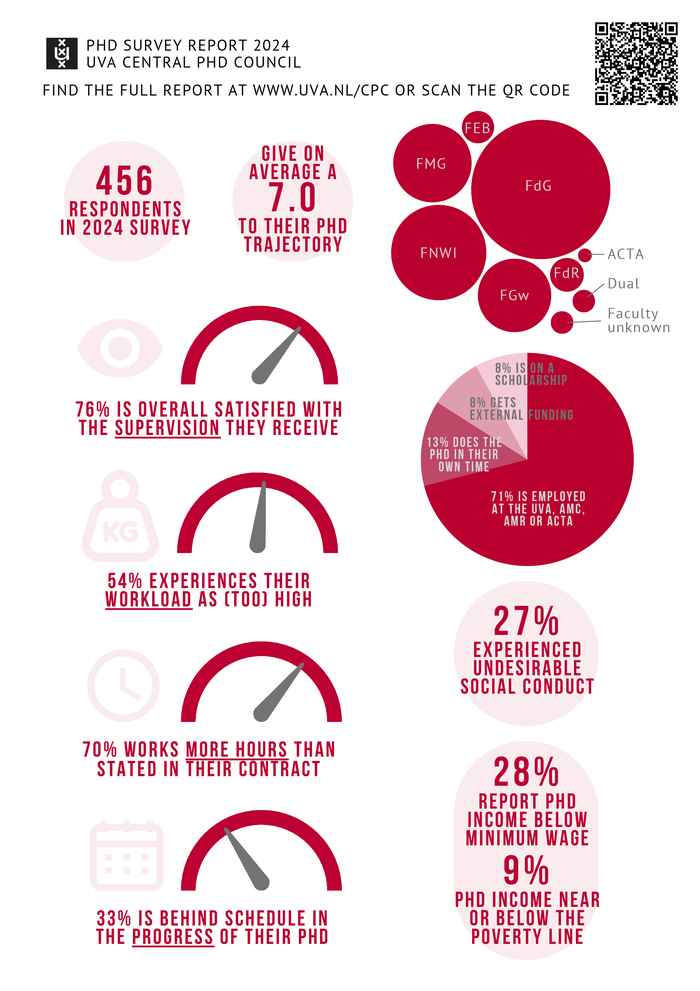Central PhD Council
The board of the Central PhD Council consists of 7 members representing the different faculties of the University of Amsterdam.
The CPC represents at the central level over 4000 UvA PhD candidates from these 7 faculties. The Central PhD Council also advocates for the interests of PhD candidates at a national level through its membership in the PhD candidates Network of the Netherlands (PNN).
What do we do?
- Monthly CPC meetings: the CPC board meets once a month to discuss current topics and exchange information between PhD councils of each faculty. PhD candidates who are not a board member, or other university staff members, may attend the board meetings to discuss and put issues on the agenda. Would you like to attend a board meeting? Send us an email!
- Quarterly meetings with the University’s Rector Magnificus, a representative of the department of academic affairs, and a representative of the faculty deans.
- Meetings with various people within the organisation, depending on the topic discussed. For instance, we’ve had or are part of meetings with the COR, the taskforce for social safety, the ombudsperson, UvA confidential advisers, the committee on recognition and rewards, the workgroup 'PhD trajectory', the health week committee.
- The bi-annual PhD survey and PhD survey report.
To monitor the experience of PhD candidates on a number of topics, a bi-annual survey is held by the CPC among all PhD candidates. This survey is distributed among all faculties, including the Faculty of Medicine.
The survey includes questions on several general topics; employment conditions, research environment, supervision, education, teaching, support, progress and wellbeing, social safety, finishing your PhD and career development.
The results of the PhD survey is summarised in a PhD survey report, which is publicly available on the UvA website. The aim of this report is to monitor experiences of PhD candidates of all faculties, and to identify points for improvement.
-
PhD Survey Report 2024 – UvA Central PhD Council (CPC)
- The UvA-focused report builds on the national PhD survey.
- Based on these outcomes, the Central PhD Council (CPC) formulated recommendations for the Executive Board (CvB) and deans.
- The CPC represents all PhD candidates at the central level, in coordination with faculty PhD councils and the PhD Candidates Network of the Netherlands (PNN).
-
PhD trajectory
- 456 respondents participated in the 2024 survey.
- On average, PhD candidates rate their PhD track 7.0 out of 10.
- 33% are behind schedule in their PhD progress.
-
Supervision
- 76% are overall satisfied with the supervision they receive.
-
Work conditions
- 54% experience their workload as (too) high.
- 70% work more hours than stated in their contract.
-
Wellbeing and social safety
- 27% have experienced undesirable social conduct.
-
Income and employment
- 71% are employed at UvA, AMC, AMR or ACTA.
- 8% receive external funding, 8% are on a scholarship, and 13% pursue their PhD in their own time.
- 28% report income below minimum wage, and 9% near or below the poverty line.
